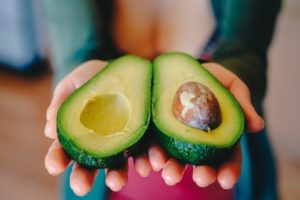
MEDFORD, Mass. —An apple a day may keep the doctor away, but what about an avocado a day? Turns out it may be even better.
A study conducted at Tufts University suggests that eating a whole fresh avocado every day could lead to better brain and eye function in healthy older adults. That's due to the level of lutein and other nutrients in avocados.

“The results of this study suggest that the monounsaturated fats, fiber, lutein and other bioactives make avocados particularly effective at enriching neural lutein levels, which may provide benefits for not only eye health, but for brain health,” says Elizabeth Johnson, lead investigator of the study, in a press release.
Researchers followed 40 healthy adults aged 50 and over as they ate one fresh avocado per day for six months. Study participants in a control group ate either a medium potato or a cup of chickpeas in place of the avocado. While providing the same calories, the control foods have little lutein or monounsaturated fats.
Lutein is a pigment found in certain fruits and vegetables. It builds up in the blood, eye and brain and may work as an antioxidant and anti-inflammatory agent.
Researchers found a 25% increase in lutein in the eyes of those eating a whole avocado each day. Participants also showed better results on cognition tests measuring memory, processing speed and attention levels than those in the control group.
“The results of this new research reveal that lutein levels in the eye more than doubled in subjects that consumed fresh avocados, compared to a supplement,” says Johnson, who has published other research on the topic. “Thus, a balanced diet that includes fresh avocados may be an effective strategy for cognitive health.”
The authors say that the results of their study are based on participants eating an entire avocado each day. They say more research is needed to find out whether the same results can be achieved if people consume the typical serving size of one-third of an avocado per day.
“While the conclusions drawn are from a single study that cannot be generalized to all populations, the study's outcome helps to reinforce and advance the body of published research on avocado benefits and their role in everyday healthy living,” adds Nikki Ford, director of nutrition for the Hass Avocado Board, which commissioned the research.
The study's findings were published in the journal Nutrients.











2 Comments